Indigenous Governance Database
sovereignty
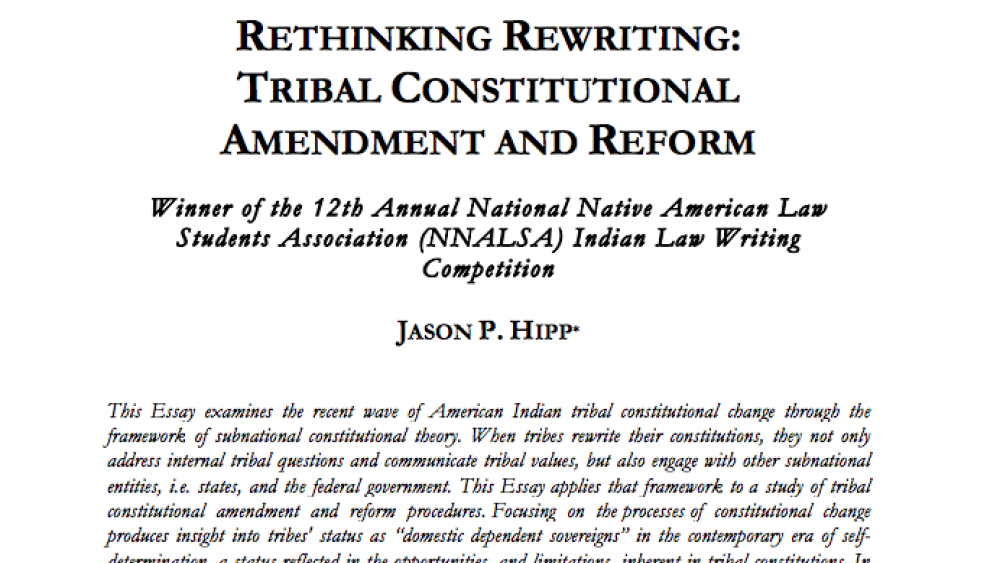
Rethinking Rewriting: Tribal Constitutional Amendment and Reform
This essay examines the recent wave of American Indian tribal constitutional change through the framework of subnational constitutional theory. When tribes rewrite their constitutions, they not only address internal tribal questions and communicate tribal values, but also engage with other…
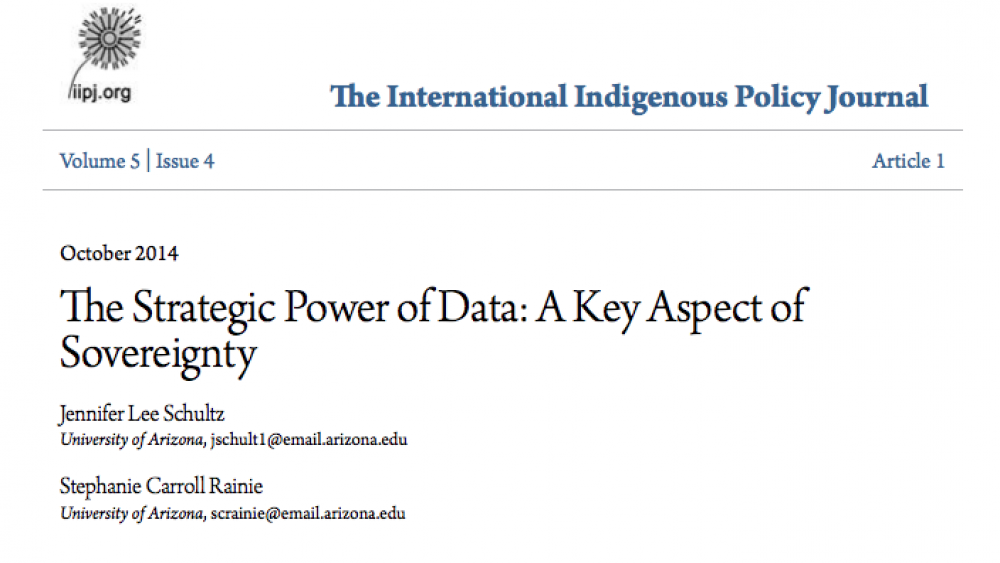
The Strategic Power of Data: A Key Aspect of Sovereignty
The lack of good data about U.S. American Indian and Alaska Native populations hinders tribes’ development activities, but it also highlights a space for sovereign action. In coming years, tribes will no doubt continue to advocate for better national data and at the same time increasingly implement…
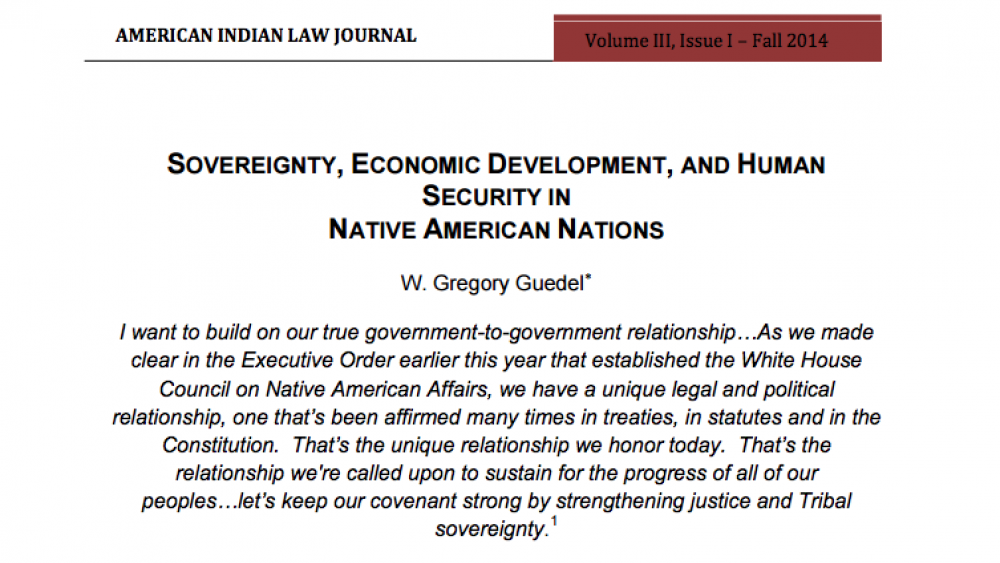
Sovereignty, Economic Development, and Human Security in Native American Nations
This study explores elements of the sovereignty dynamic in the government-to-government relationship between the United States and Native American nations to assess 1) what benefits Tribal communities glean from this unique relationship; and 2) whether enhanced Tribal sovereignty can enhance…
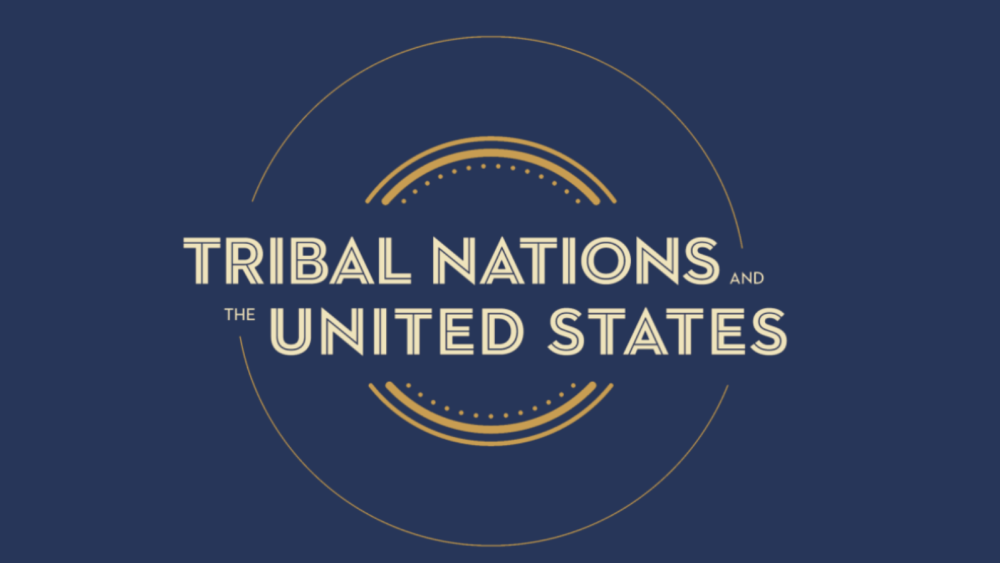
Tribal Nations and the United States: An Introduction
Tens of millions of Indigenous peoples inhabited North America, and governed their complex societies, long before European governments sent explorers to seize lands and resources from the continent and its inhabitants. These foreign European governments interacted with tribes in diplomacy, commerce…
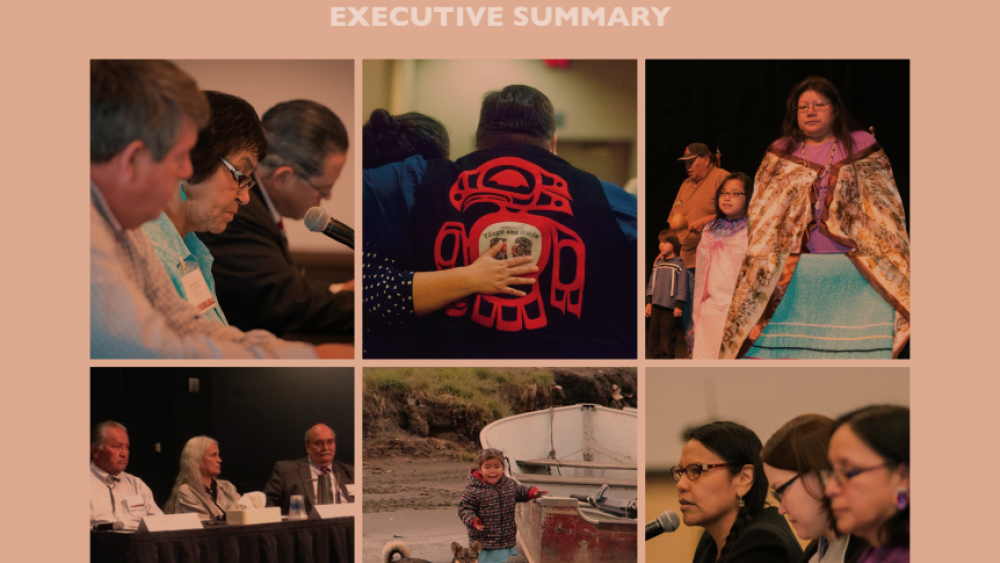
Attorney General's Advisory Committee on American Indian/Alaska Native Children Exposed to Violence: Ending Violence so Children Can Thrive
This report was created as part of the Defending Childhood Initiative created by Attorney General Eric H. Holder, Jr. This initiative strives to harness resources from across the Department of Justice to: Prevent children's exposure to violence. Mitigate the negative impact of children's…
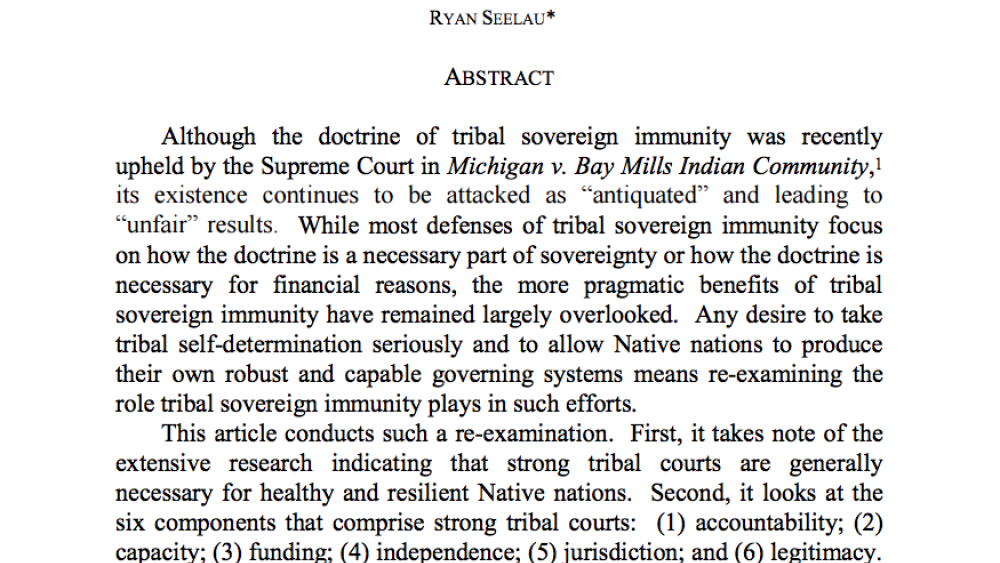
In Defense of Tribal Sovereign Immunity: A Pragmatic Look at the Doctrine as a Tool for Strengthening Tribal Courts
Although the doctrine of tribal sovereign immunity was recently upheld by the Supreme Court in Michigan v. Bay Mills Indian Community, its existence continues to be attacked as antiquated and leading to unfair results. While most defenses of tribal sovereign immunity focus on how the doctrine is a…
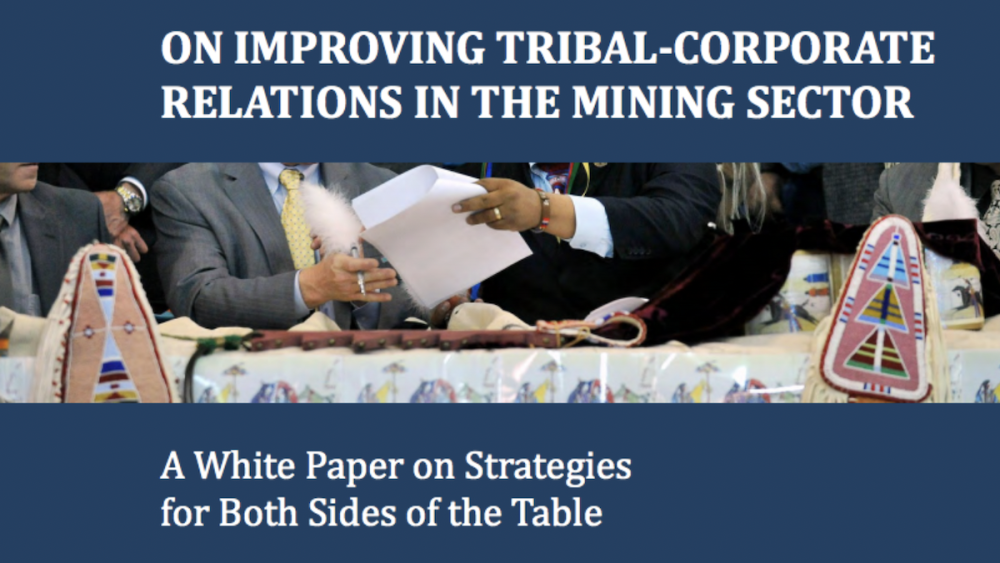
On Improving Tribal-Corporate Relations In The Mining Sector: A White Paper on Strategies for Both Sides of the Table
Mining everywhere is inherently controversial. By its very nature, it poses hard economic, environmental, and social tradeoffs. Depending on the nature of the resource and its location, to greater or lesser degrees, the mining process necessarily disturbs environments, alters landscapes, and…
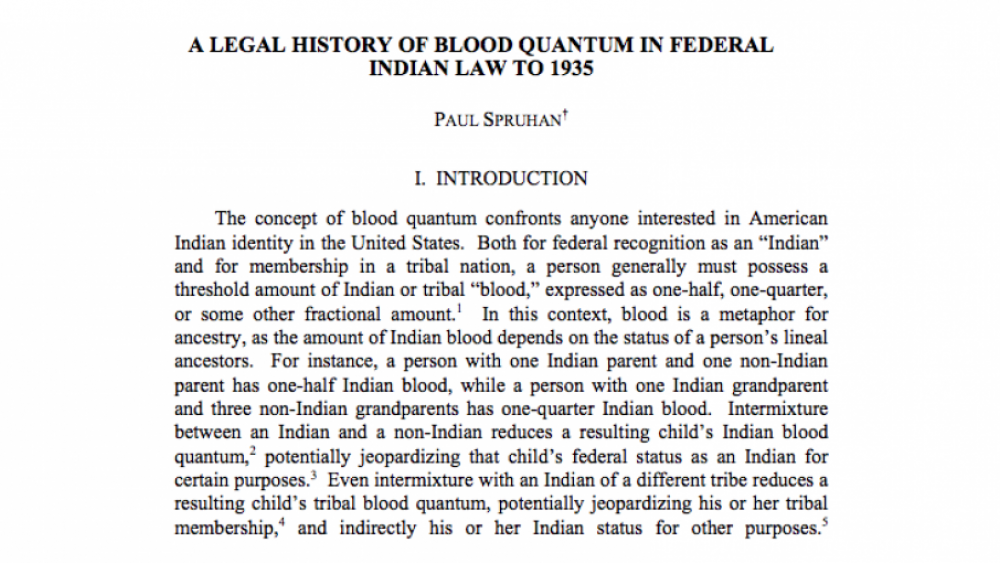
A Legal History of Blood Quantum in Federal Indian Law to 1935
The paper traces the development of the use of blood quantum, or fractional amounts of Indian blood to define Indian in federal law up to the Indian Reorganization Act of 1934. The paper shows that blood quantum was not widely used in federal law until the twentieth century, as the branches of the…
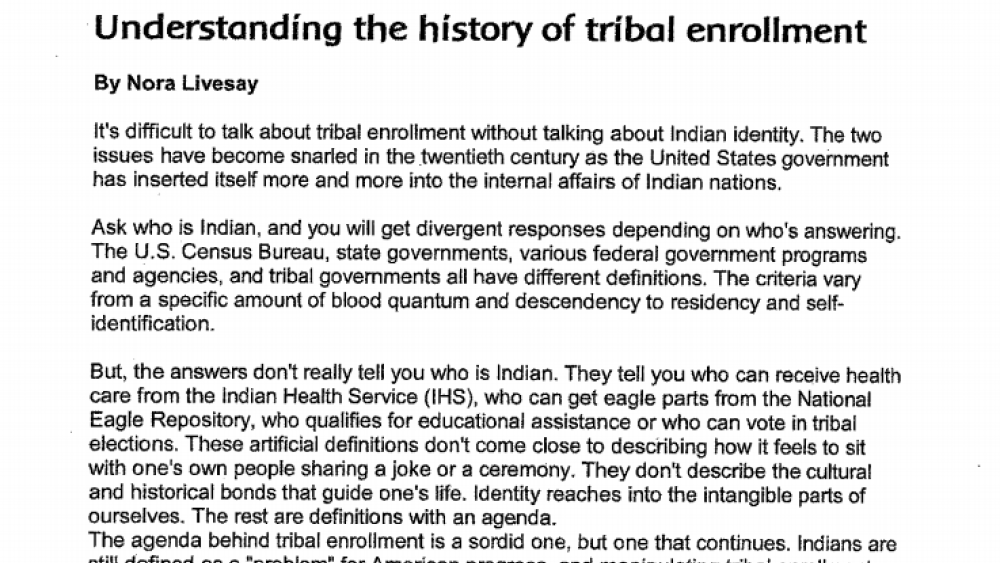
Understanding the history of tribal enrollment
It's difficult to talk about tribal enrollment without talking about Indian identity. The two issues have become snarled in the twentieth century as the United States government has inserted itself more and more into the internal affairs of Indian nations. Ask who is Indian, and you will get…
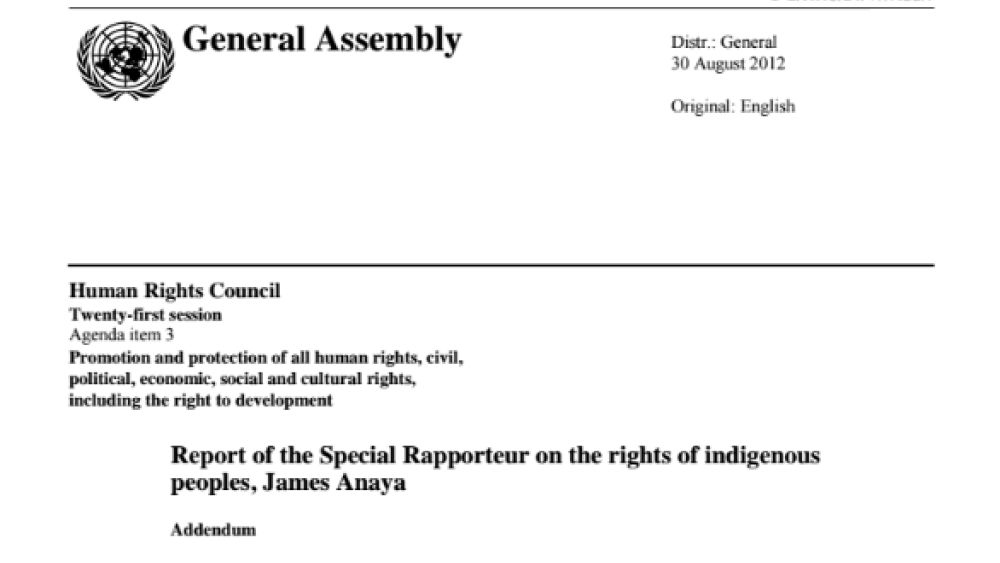
The situation of indigenous peoples in the United States of America
In this report, the United Nations Special Rapporteur on the rights of indigenous peoples examines the human rights situation of indigenous peoples in the United States, on the basis of research and information gathered, including during a visit to the country from 23 April to 4 May 2012. During…
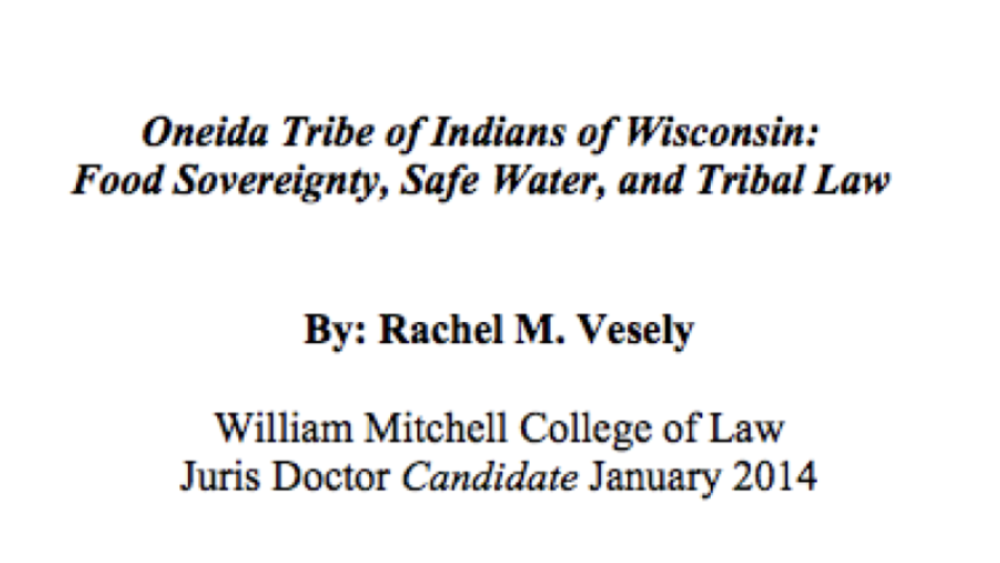
Oneida Tribe of Indians of Wisconsin: Food Sovereignty, Safe Water, and Tribal Law
An example of a Native American community working to achieve food sovereignty not only with physical nutrients but also with social elements is the Oneida Tribe of Indians of Wisconsin. This article analyzes the strengths of the Oneida Tribe's approach to preserving water quality and fishing…
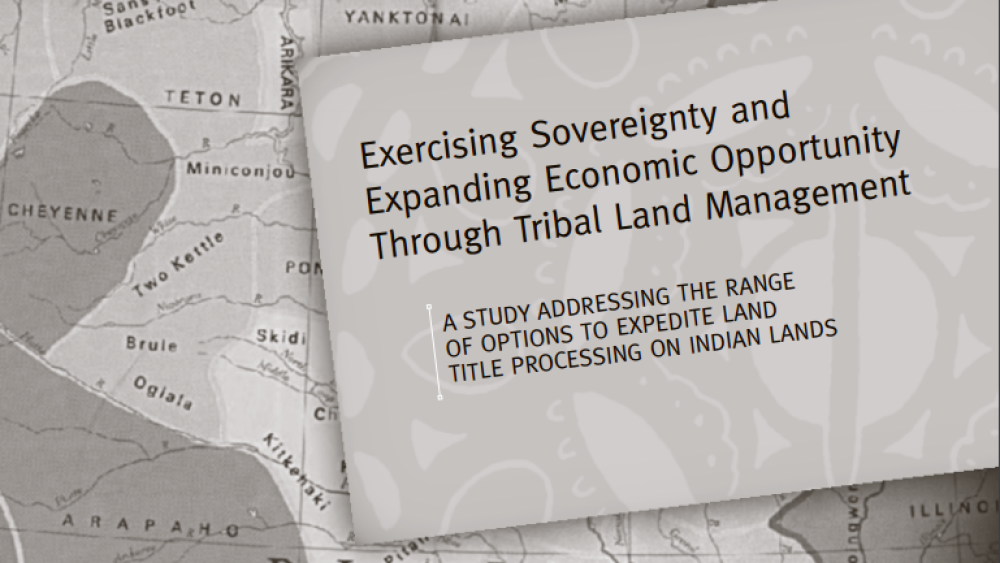
Exercising Sovereignty and Expanding Economic Opportunity Through Tribal Land Management
While the United States faces one of the most significant housing crises in the nation’s history, many forget that Indian housing has been in crisis for generations. This report seeks to take some important steps toward a future where safe, affordable, and decent housing is available to Native…
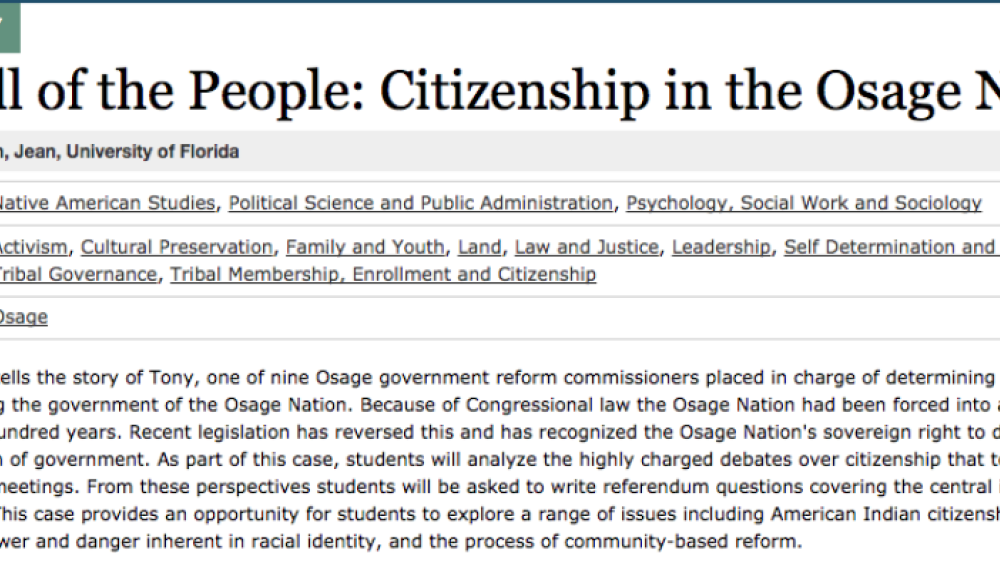
The Will of the People: Citizenship in the Osage Nation
This teaching case tells the story of Tony, one of nine Osage government reform commissioners placed in charge of determining the "will of the people" in reforming the government of the Osage Nation. Because of Congressional law the Osage Nation had been forced into an alien form of government for…
![Tribal Law as Indigenous Social Reality and Separate Consciousness: [Re]Incorporating Customs and Traditions into Tribal Law Tribal Law as Indigenous Social Reality and Separate Consciousness: [Re]Incorporating Customs and Traditions into Tribal Law](/sites/nnigovernance.arizona.edu/files/styles/resources/public/resources/Screen%2520Shot%25202016-10-11%2520at%25201.22.13%2520PM.png?itok=r-DrCTma)
Tribal Law as Indigenous Social Reality and Separate Consciousness: [Re]Incorporating Customs and Traditions into Tribal Law
At some point in my legal career, I recall becoming increasingly uncomfortable with the inconsistencies between the values in the written law of various indigenous nations and the values I knew were embedded in indigenous societies themselves. The two are not entirely in harmony, and in fact, in…
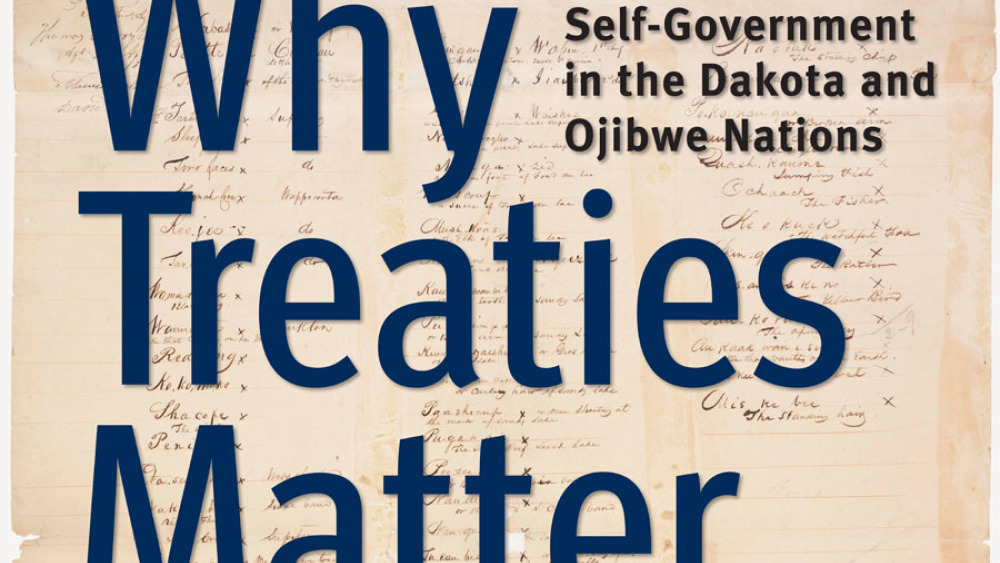
Why Treaties Matter: Relations: Dakota & Ojibwe Treaties
Ojibwe and Dakota people in what is now Minnesota signed dozens of treaties with the United States. Among these treaties are famous land cession agreements in which sovereign American Indian groups retained ownership or use of natural resources — land, water, timber, minerals — or transferred these…
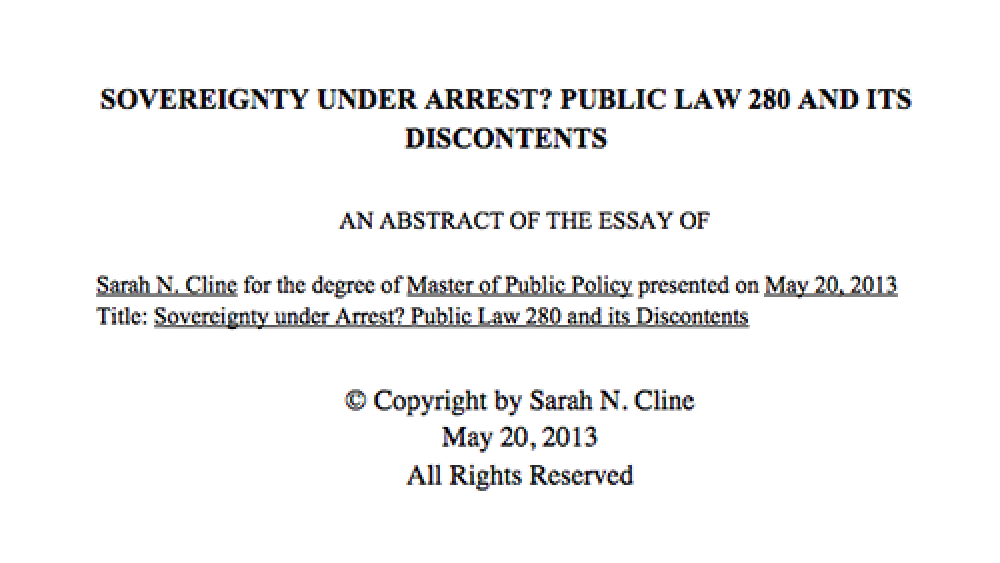
Sovereignty Under Arrest? Public Law 280 and Its Discontents
Law enforcement in Indian Country has been characterized as a maze of injustice, one in which offenders too easily escape and victims are too easily lost (Amnesty International, 2007). Tribal, state, and federal governments have recently sought to amend this through the passage of the Tribal Law…
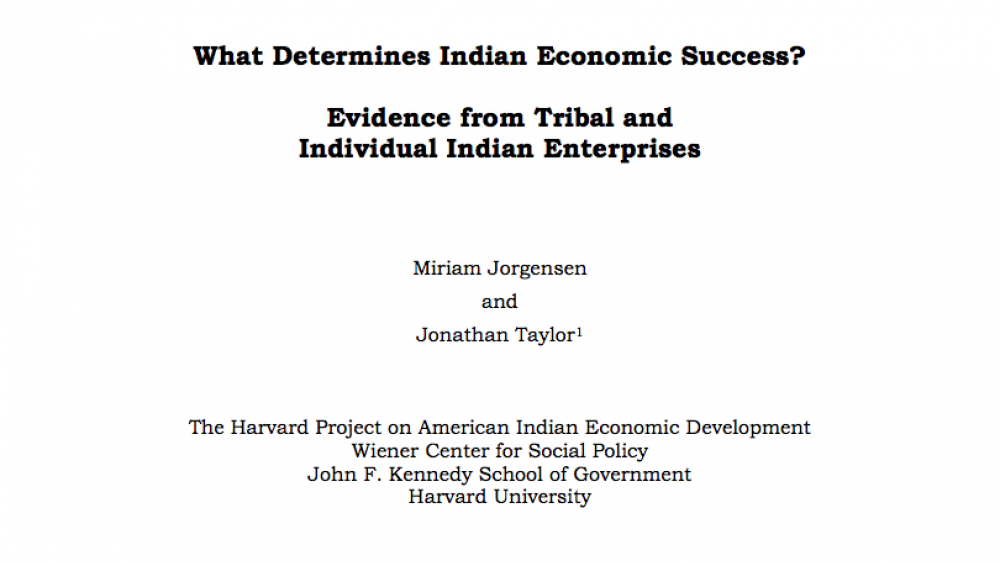
What Determines Indian Economic Success? Evidence from Tribal and Individual Indian Enterprises
Prior analysis of American Indian nations' unemployment, poverty, and growth rates indicates that poverty in Indian Country is a problem of institutions particularly political institutions, not a problem of economics per se. Using unique data on Indian-owned enterprises, this paper sheds light on…
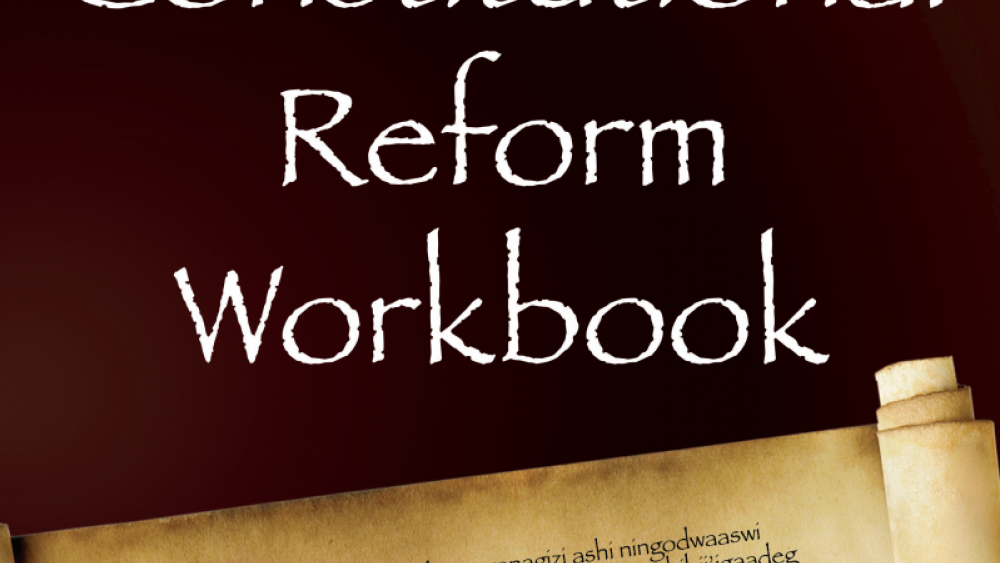
White Earth Nation Constitutional Reform Workbook
The core purpose of this Constitution is to take action and directly express, through that action, native cultural sovereignty. This workbook is designed to help the citizens of the White Earth Nation to understand their constitution. Through this effort and through your understanding of the…
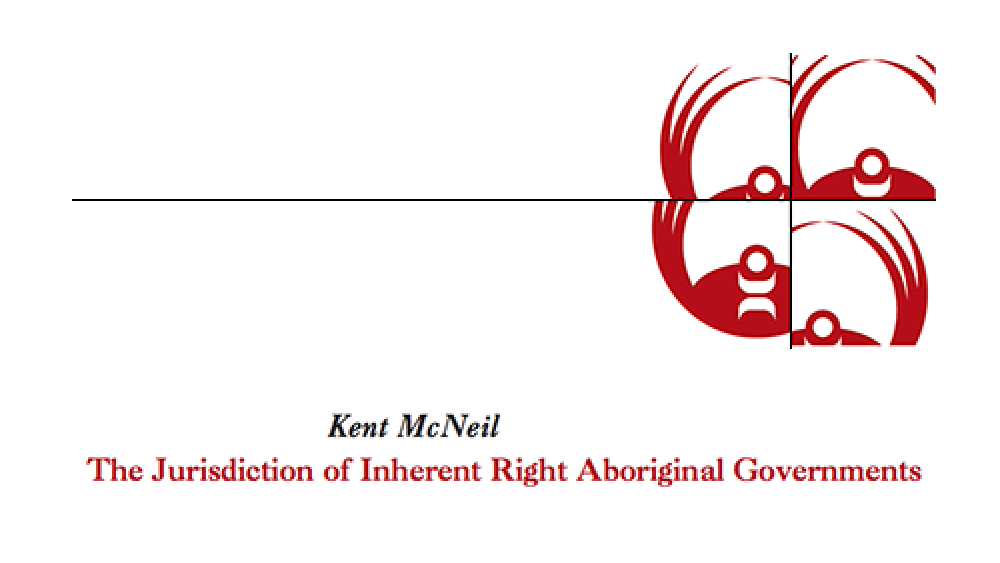
The Jurisdiction of Inherent Right Aboriginal Governments
Since the recognition of Aboriginal and treaty rights in Canada by section 35(1) of the Constitution Act, 1982, the inherent right of the Aboriginal peoples to govern themselves has become a generally accepted aspect of Canadian constitutional law. But what is the scope of the…
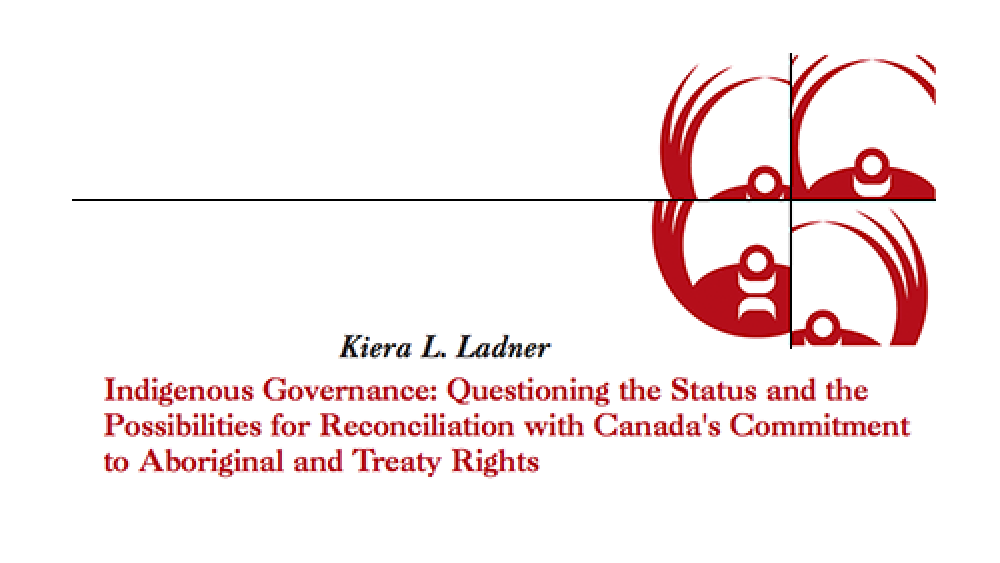
Indigenous Governance: Questioning the Status and the Possibilities for Reconciliation with Canada's Commitment to Aboriginal and Treaty Rights
Indigenous peoples have always had governance. This fact has been a matter of great debate among Canadian politicians and scholars for many years, but there is little doubt that Indigenous Nations had developed for themselves complex systems of government prior to colonization. The…
Pagination
- First page
- …
- 11
- 12
- 13
- …
- Last page
